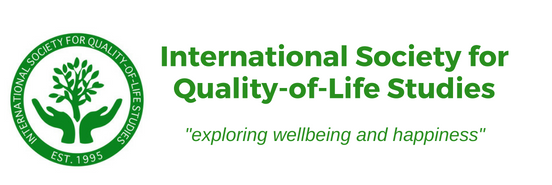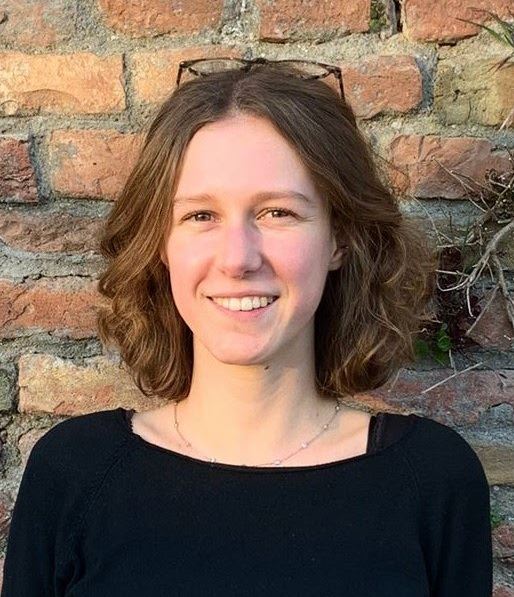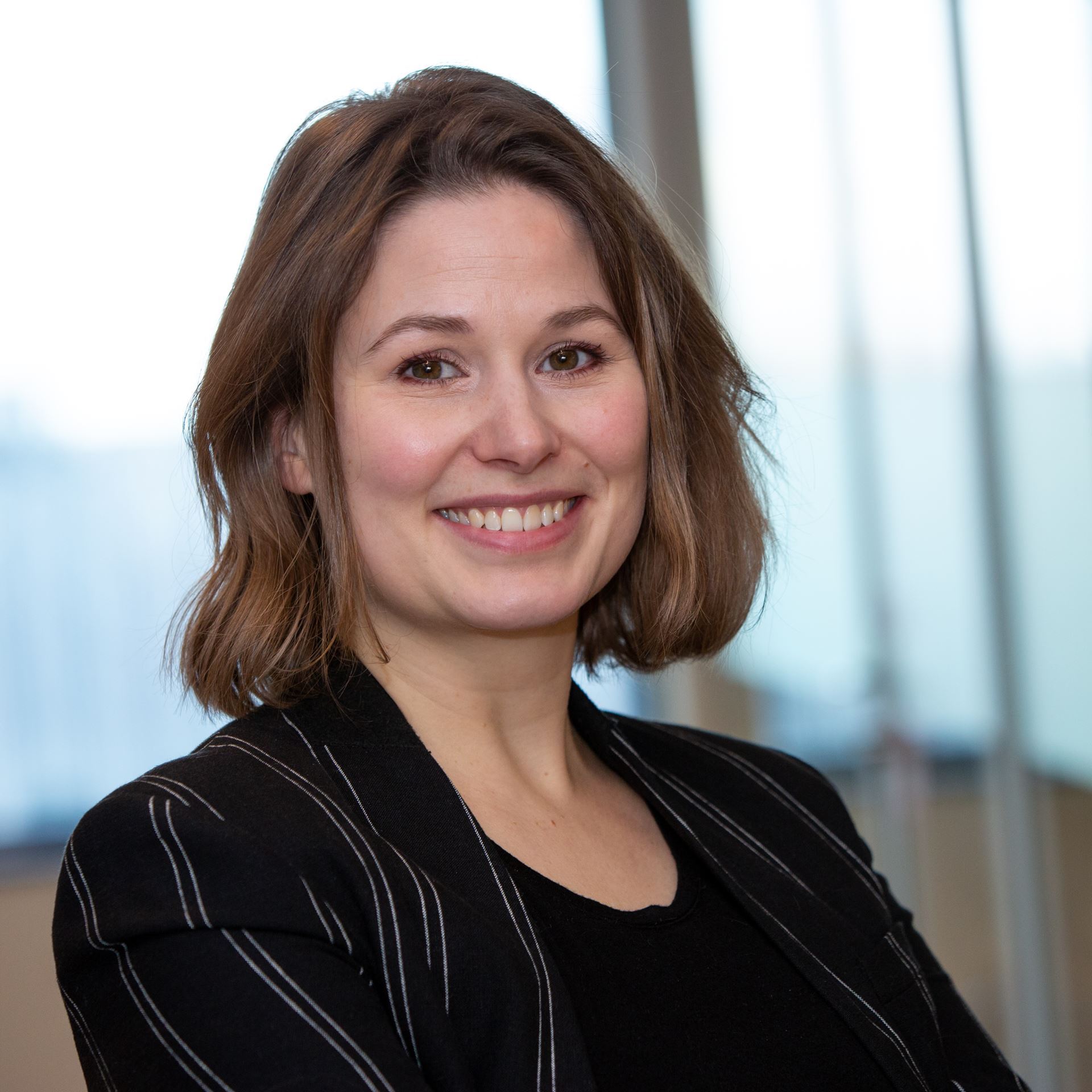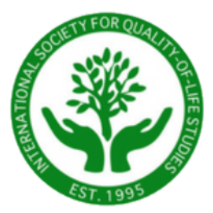|
ISQOLS Post-Doctoral Research Fellowship
Description:
The International Society for Quality-of-Life Studies (ISQOLS) Post-Doctoral Research Fellowship is intended to support one postdoctoral candidate conducting research in quality-of-life, happiness, and/or wellbeing studies.
Award:
The one-year fellowship award offers a $5,000 stipend and a paid conference registration to ISQOLS Annual conference, as well as a one-year ISQOLS membership.
Fellowship Requirements:
The Post-Doctoral Research Fellow is required to submit one paper to the ISQOLS Working Paper Series, a non-peer reviewed publication. The paper will be edited by the WPS series editor(s). The guidelines for the papers are to be determined by the Working Paper Series Committee.
The Post-Doctoral Research Fellow will also present one webinar to the ISQOLS community, with an overview of the research conducted during the fellowship.
Qualifications:
Post-doc (early career) individuals, who are no more than 5 years from the completion of their dissertation/graduation.
Must have completed a dissertation and/or research project on a topic related to the field of quality-of-life, happiness, and/or well-being studies.
ISQOLS 2026 Post-Doctoral Research Fellowship Application now available
- The fellowship will begin 1 January 2026 and will run through 31 December, 2026.
- Fellows will be awarded $2500 USD upon the start of their fellowship and will receive the additional $2500 USD upon successfully completing the requirements for the fellowship. Fellows will have the option of attending an ISQOLS 2026 Conference of their choice.
- See above requirements and qualifications.
- Application Deadline: 15 December, 2025
Access ISQOLS 2026 Post-Doctoral Research Fellow Application
Questions: contact office@isqols.org
ISQOLS 2025 Post-Doctoral Research Fellow: Dr. Kate Sollis
Dr Kate Sollis is a passionate advocate for engaging with community members when developing wellbeing policy frameworks and measurement tools. She is an interdisciplinary researcher with over ten years of experience in a range of social research areas including wellbeing policy frameworks, child wellbeing, wellbeing measurement, participatory approaches, and nature connection. Kate is currently a Research Fellow at the University of Tasmania in Australia and President of the Bega Valley Data Collective, a place-based initiative which seeks to empower the community to thrive through a wellbeing framework based on collaboration, data and action. Kate’s research challenges the status quo on how wellbeing is measured. Wellbeing measurement tools are too often applied in contexts where their relevance has not been adequately tested. Given that wellbeing measures are largely developed in WEIRD (Western, Educated, Industrialised, Rich, and Democratic) contexts, this is especially the case for communities in lower-income, non-Western countries. Kate’s research sheds light on this issue and highlights the numerous benefits of using participatory approaches for wellbeing measurement. These include ensuring measurement frameworks and tools adequately represent wellbeing, enhancing community ownership, empowering individuals and communities, and helping to achieve policy impact. |
ISQOLS 2025 Post-Doctoral Research Fellow: Dr. Hossein Mousazadeh
Hossein Mousazadeh, Ph.D. Postdoctoral Research Assistant, John Martinson Honors College, Community and Well-Being Learning Collaborative. Dr. Hossein Mousazadeh aims to advance the fields of Quality of Life, Well-Being, and Community Development through impactful interdisciplinary research and innovative education in sustainable development, community empowerment, and tourism. The central goal of his research is to promote health equity by addressing structural factors that influence community quality of life, well-being, and overall health outcomes. Dr. Mousazadeh strives to empower local communities and foster sustainable growth by integrating evidence-based practices with experiential learning opportunities. Passionate about creating inclusive environments, he seeks to bridge the gap between theory and practice, addressing the diverse needs of individuals, families, and communities. Through collaborative teaching and research, he aims to cultivate future leaders who champion diversity, resilience, and meaningful contributions to communities. Dr. Mousazadeh has been an active member of ISQOLS since 2019 and was featured in the ISQOLS Member Spotlight, as well as active member of American Public Health Association (APHA), Community Development Society (CDS), National Rural Health Association (NRHA), Indiana Rural Health Association (IRHA), and American Association of Geographers (AAG). Dr. Mousazadeh are Faculty Affiliate, Institute for a Sustainable Future (ISF); The Methodology Center at Purdue (MCAP); Women's Global Health Institute (WGHI) at Purdue University, and Member of The Interdisciplinary Network on Rural Population Health and Aging (INRPHA). He serves as an editor for numerous journals related to quality of life, happiness, well-being, and community development. Hossein enjoys playing soccer and volleyball, cooking Persian foods, and making Persian tea with his wife, Farah. His slogan is "Live and Learn." |
ISQOLS 2024 Post-Doctoral Research Fellow: Dr. Giulia Slater
Dr. Giulia Slater is junior researcher in Economics at STATEC Research, the research division of the National Statistics Office of Luxembourg. Before that, she completed a PhD in Economics at the University of Siena. Her work has since focused on the role of social capital for the well-being of individuals and societies. In particular, she explored the importance of both relational goods and trust in directly determining the mental health and life satisfaction of people, as well as their role as moderators of the importance of money for subjective well-being. As part of her PhD dissertation, she further analyzed the role of social capital for well-being during the Covid-19 pandemic, both at the individual level and from a public health and governance perspective. She has recently been working on the relationship between trust and economic growth, and published an ISQOLS working paper on the topic. Some of her other research interests include well-being and social relations at work, the epidemiology of social capital, and the role of subjective well-being in determining productivity and consumption. She is now part of an international Horizon project, which aims, among other things, at exploring the possibility of using a well-being framework to create a sustainable economy. She started researching in the field of quality of life because as a trained economist she was taught to measure utility with income, and to measure progress with economic growth. She never thought this was the best way to do so, and finding that researchers had been using subjective well-being convinced her it could be an alternative to empirically measure utility. Moreover, it became clear to her that focusing on making well-being a priority would be key in making sure societies will thrive in a world of environmental and social challenges that include climate crises and inequality concerns, including well-being ones. Dr. Slater thinks the field of quality of life studies still has a lot to develop and research on: firstly, she believes that to better inform policy making we should decide on how to best measure subjective well-being, as this topic is still up for much debate. Secondly, quality of life research should find a way to implement a well-being economy to reconcile the current socio-economic system with a sustainable society. Additionally, we should focus on reducing well-being inequalities, and research into the determinants and solutions for the increasing misery that many individuals are experiencing. Lastly, she believes that what could benefit the field is further research on policies targeting well-being and social capital and how these can be implemented. She has been a member of ISQOLS since she attended the online conference in 2021, and she has attended all the yearly events after to keep up with all the great work that well-being scholars are producing in this interdisciplinary context. The ISQOLS community has always been very supportive of her work and her career development, and she is grateful for the research, as well as material, help that ISQOLS provided her with, for instance with the education grant in 2022 and the post-doctoral fellowship. She has learned a lot on quality of life studies since being a member of ISQOLS and she is happy to continue being part of this community. |
| ISQOLS 2023 Post-Doctoral Research Fellow: Dr. Emma Pleeging Dr. Emma Pleeging is a senior researcher and project coordinator at the Erasmus Happiness Economics Research Organisation (EHERO) at Erasmus University Rotterdam. Her work focuses on the role of positive experiences such as happiness and hope in society, organisations and for individuals. She has written extensively on the meaning, relevance and measurement of hope from an interdisciplinary perspective. Indeed, she has published six papers on hope in international journals since 2020, one received a best paper award, and her dissertation on hope also received a best dissertation award in 2022. Also, she coordinates projects aimed at increasing worker-wellbeing in Dutch organisations. In her dissertation, she focused specifically on the definition, role and measurement of hope. This topic will always stay close to her heart, but she also believe it will become increasingly important in the field of quality-of-life. People are inherently forward looking creatures, and how we view our future is so important for both how we feel in the moment, and how we behave to create a better future. Especially in a time where we are increasingly aware of the challenges that lay ahead, hope is a constructive force to help us prepare for the future, without closing our eyes to the uncertainties of the future. She has been a member of ISQOLS since the first year she visited its conference in 2016. The community surrounding ISQOLS has been incredibly uplifting and supportive in the development of her career. She has greatly enjoyed both the informal talks with a greatly diverse and positive-minded group of people, as well as the formal opportunities to present her work and receive recognition from academics she greatly admires. |






